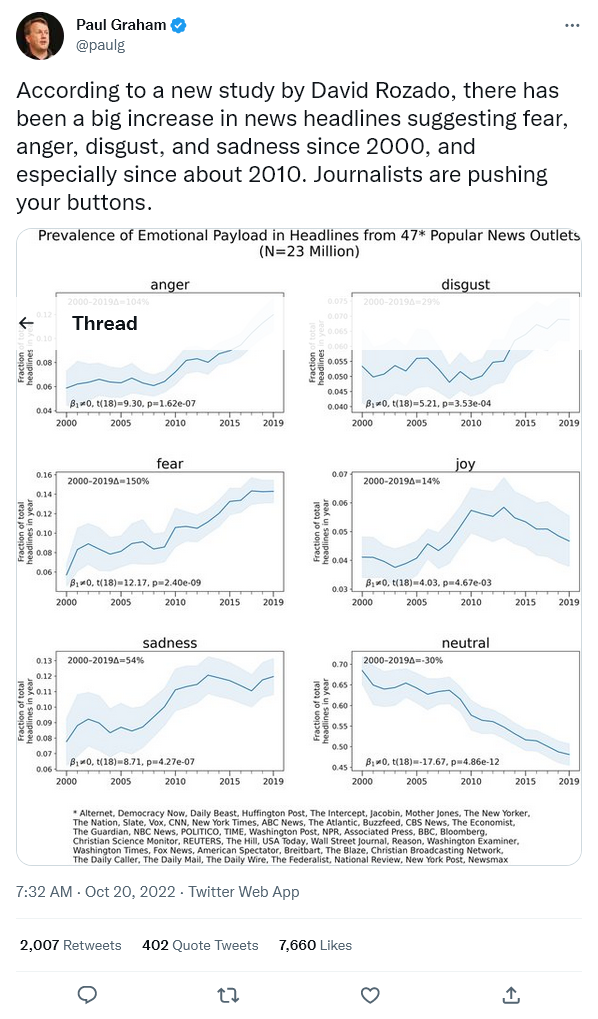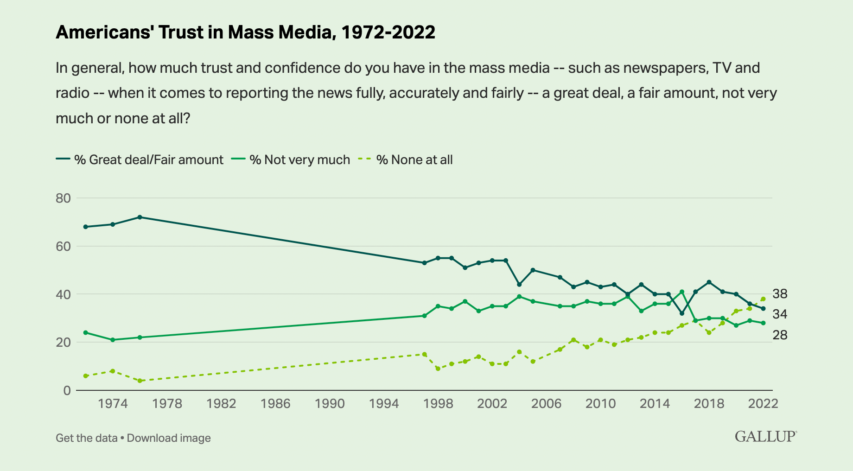In The Upheaval, N.S. Lyons considers the literary warnings of well-known dystopian writers like Aldous Huxley and George Orwell, but makes the strong case that C.S. Lewis and J.R.R. Tolkien were even more prescient in the warnings their works contain:
Which dystopian writer saw it all coming? Of all the famous authors of the 20th century who crafted worlds meant as warnings, who has proved most prophetic about the afflictions of the 21st? George Orwell? Aldous Huxley? Kurt Vonnegut? Ray Bradbury? Each of these, among others, have proved far too disturbingly prescient about many aspects of our present, as far as I’m concerned. But it could be that none of them were quite as far-sighted as the fairytale spinners.
C.S. Lewis and J.R.R. Tolkien, fast friends and fellow members of the Inklings – the famous club of pioneering fantasy writers at Oxford in the 1930s and 40s – are not typically thought of as “dystopian” authors. They certainly never claimed the title. After all, they wrote tales of fantastical adventure, heroism, and mythology that have delighted children and adults ever since, not prophecies of boots stamping on human faces forever. And yet, their stories and non-fiction essays contain warnings that might have struck more surely to the heart of our emerging 21st century dystopia than any other.
The disenchantment and demoralization of a world produced by the foolishly blinkered “debunkers” of the intelligentsia; the catastrophic corruption of genuine education; the inevitable collapse of dominating ideologies of pure materialist rationalism and progress into pure subjectivity and nihilism; the inherent connection between the loss of any objective value and the emergence of a perverse techno-state obsessively seeking first total control over humanity and then in the end the final abolition of humanity itself … Tolkien and Lewis foresaw all of the darkest winds that now gather in growing intensity today.
But ultimately the shared strength of both authors may have also been something even more straightforward: a willingness to speak plainly and openly about the existence and nature of evil. Mankind, they saw, could not resist opening the door to the dark, even with the best of intentions. And so they offered up a way to resist it.
Subjectivism’s Insidious Seeds
The practical result of education in the spirit of The Green Book must be the destruction of the society which accepts it.
When Lewis delivered this line in a series of February 1943 lectures that would later be published as his short book The Abolition of Man, it must have sounded rather ridiculous. Britain was literally in a war for its survival, its cities being bombed and its soldiers killed in a great struggle with Hitler’s Germany, and Lewis was trying to sound the air-raid siren over an education textbook.
But Lewis was urgent about the danger coming down the road, a menace he saw as just as threatening as Nazism, and in fact deeply intertwined with it, give that:
The process which, if not checked, will abolish Man goes on apace among Communists and Democrats no less than among Fascists. The methods may (at first) differ in brutality. But many a mild-eyed scientists in pince-nez, many a popular dramatist, many an amateur philosopher in our midst, means in the long run just the same as the Nazi rulers of Germany. Traditional values are to be “debunked” and mankind to be cut into some fresh shape at will (which must, by hypothesis, be an arbitrary will) of some few lucky people …
Unfortunately, as Lewis would later lament, Abolition was “almost totally ignored by the public” at the time. But now that our society seems to be truly well along in the process of self-destruction kicked off by “education in the spirit of The Green Book“, it might be about time we all grasped what he was trying to warn us about.
This “Green Book” that Lewis viewed as such a symbol of menace was his polite pseudonym for a fashionable contemporary English textbook actually titled The Control of Language. This textbook was itself a popularization for children of the trendy new post-modern philosophy of Logical Positivism, as advanced in another book, I.A. Richards’ Principles of Literary Criticism. Logical Positivism saw itself as championing purely objective scientific knowledge, and was determined to prove that all metaphysical priors were not only false but wholly meaningless. In truth, however, it was as Lewis quickly realized actually a philosophy of pure subjectivism – and thus, as we shall see, a sure path straight out into “the complete void”.
In Abolition, Lewis zeros in on one seemingly innocuous passage in The Control of Language to begin illustrating this point. It relates a story told by the English poet Samuel Taylor Coleridge, in which two tourists visit a majestic waterfall. Gazing upon it, one calls it “sublime”. The other says, “Yes, it is pretty.” Coleridge is disgusted by the latter. But, as Lewis recounts, of this story the authors of the textbook merely conclude:
When the man said This is sublime, he appeared to be making a remark about the waterfall … Actually … he was not making a remark about the waterfall, but a remark about his own feelings. What he was saying was really I have feelings associated in my mind with the word “sublime”, or shortly, I have sublime feelings … This confusion is continually present in language as we use it. We appear to be saying something very important about something: and actually we are only saying something about our own feelings.
For Lewis, this “momentous little paragraph” contains all the seeds necessary for the destruction of humanity.







